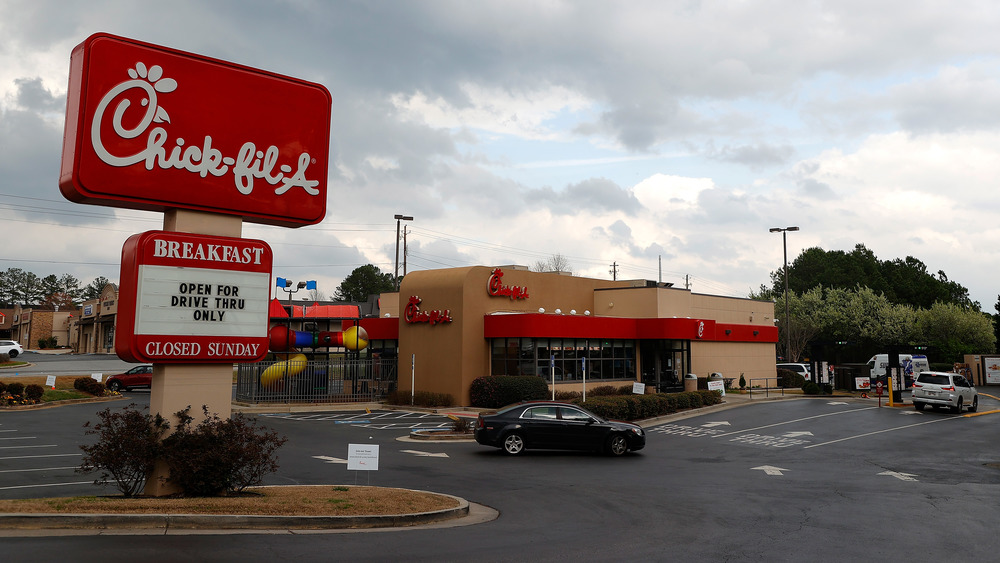You'll Probably Never Own A Chick-Fil-A Franchise. Here's Why
Chick-fil-A, as National Restaurant News reported, became the third largest chain in the U.S. in 2019, only behind the behemoths of Starbucks and McDonald's. Its domestic sales, which, considering how few international outlets Chick-fil-A has, means all of them, totaled around $1.5 billion. So, obviously, many people want a piece of that action.
In 2016, Amanda Hannah, a Chick-fil-A spokeswoman, estimated for Business Insider that the number of people wanting a piece was over 20,000. Of those more than 20,000 applicants, 75 to 80 become a Chick-fil-A franchisee. That, for those curious, translates to 0.4 percent.
Chick-fil-A makes no pretenses on their website about what they're looking for: "Competitive candidates will show evidence of personal financial integrity and stewardship, proven business leadership-and business acumen, an entrepreneurial spirit, a growth mindset, and strong character." To get such an operator, which is what Chick-fil-A calls their franchisees, Chick-fil-A puts candidates through a year-long interview period.
The rigors of the process are detailed in the Houston Chronicle. After candidates express interest, Chick-fil-A needs a demonstration that the candidate has no other business interests. Moreover, the candidate must convince Chick-fil-A that the operator would take an active interest in participating in the community: "You'll also be expected to perform charitable, supportive acts as a representative of the company. This could include everything from starting a youth program in your restaurant to handing out food to local disaster victims." Anyone fitting such a profile could find themselves involved in Chick-fil-A.
Is a Chick-fil-A franchise worth it?
If you do convince the heads of Chick-fil-A to give you a shot, you will only need to front an investment of $10,000. If this sounds like a lot of money, realize that McDonald's requires tens of thousands at a minimum. That does not even take into account your net worth, which McDonald's requires to be $500,000 while Chick-fil-A has no such need, making it an anomaly in the industry.
A piece in The Hustle attempts to spell out why opening a Chick-fil-A is so easy, in monetary terms anyway. Part of the answer is that with such a low acceptance rate, Chick-fil-A can feel more certain in investing in new franchises. The larger answer, however, is that a Chick-fil-A operator barely counts as a franchisee.
While Chick-fil-A charges the least of any brand to open a franchise, they take the most in royalties and net profit, 15 percent and 50 percent, respectively. So, the piece of $1.5 billion already looks less rosy. Worse, operators do not actually own the restaurants they are expected to sweat over. Nor do they have any stake in them. In most cases, they can't open multiple franchises. As already mentioned, they cannot have any other business interests. For a 60-hour week of such work, an operator can expect a salary of $150,000-$250,000 per year.
Nonetheless, $150,000-$250,000 is, obviously, a good salary these days. However, it is worth wondering whether the myriad demands Chick-fil-A places on its operators makes the pay worth it.

